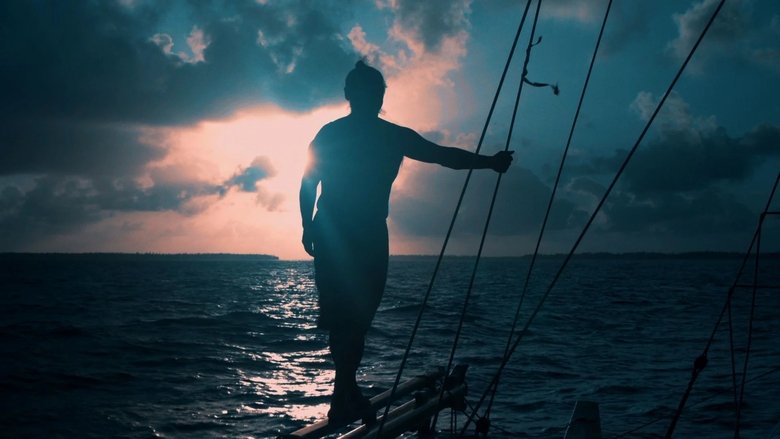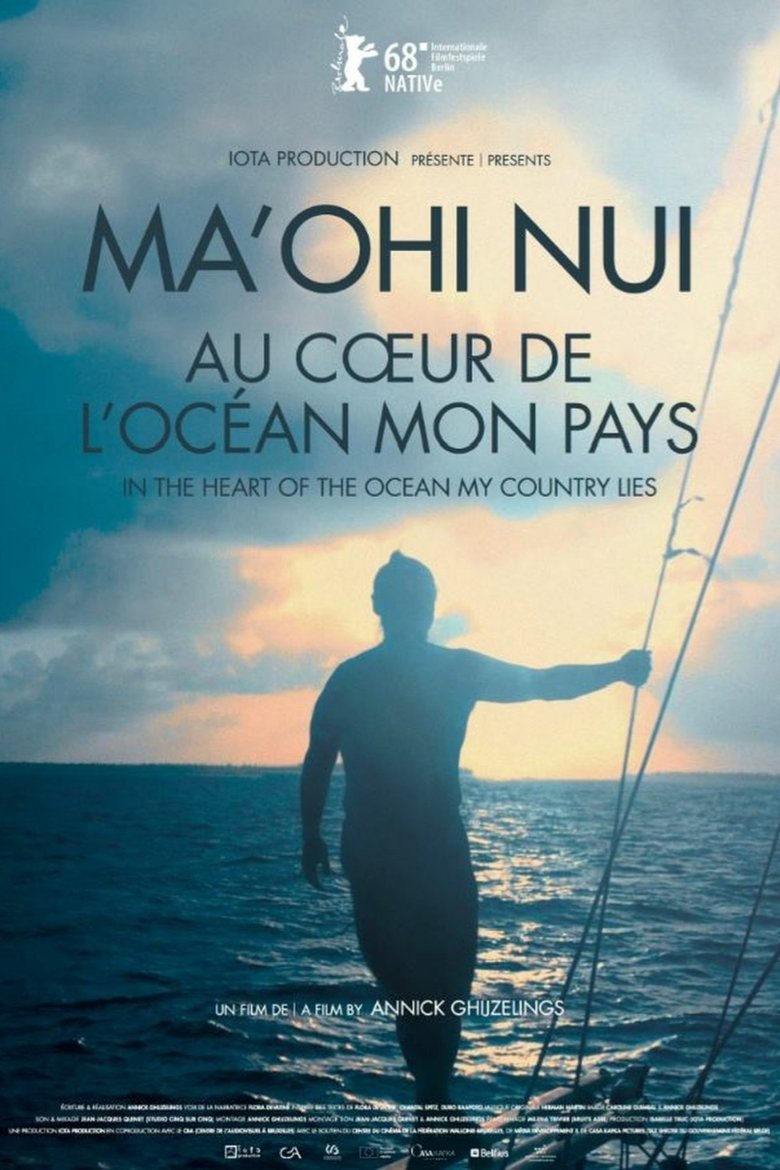Loading


Ma'ohi Nui: In the Heart of the Ocean My Country Lies
Genres
Documentary
Overview
For thirty years in the late-twentieth century, the people of Tahiti survived dozens of offshore nuclear tests by the French government. Since the country was colonized in 1880, the blasts left Tahitians picking through the remnants of their islands and culture in an effort to keep indigenous knowledges alive. The film offers a poetic glimpse into contemporary Tahiti, and the colonial struggles its people still face as they strive to sustain their way of life.
Details
Budget
$0
Revenue
$0
Runtime
113 min
Release Date
2018-05-05
Status
Released
Original Language
French
Vote Count
1
Vote Average
8
Cast
Meet the talented actors who bring the movie to life.
Flora Devatine
Herself
Similar Movies
Explore movies similar to this one that you might also enjoy.
0.0
Samoa i Sisipo
An overview of the people, lifestyle, and traditions of Samoa, as well tourism and other economic changes on the Samoan islands.
1972-01-01 | en
7.5
Intercepted
Intercepted is a journey through Ukraine that reveals the banality of evil behind the Russian invasion with the shocking juxtaposition of two realities: the Ukrainians who have been suffering and resisting the war violence, and the Russian military, and civilians, who have been perpetrating it.
2025-01-31 | uk
0.0
Shipibo: Learning Through the Light
Shipibo healer Ricardo Amaringo describes how he prepares, teaches, and shares the plant medicine ayahuasca. Olivia and Julian Arévalo sing examples of icaros (healing songs) in the Shipibo language.
2018-08-14 | en
10.0
Frantz Fanon, trajectoire d'un révolté
Frantz Fanon alone embodies all the issues of French colonial history. Martinican resistance fighter, he enlisted, like millions of colonial soldiers, in the Free Army out of loyalty to France and the idea of freedom that it embodies for him. A writer, he participated in the bubbling life of Saint-Germain with Césaire, Senghor and Sartre, debating tirelessly on the destiny of colonized peoples. As a doctor, he revolutionized the practice of psychiatry, seeking in the relations of domination of colonial societies the foundations of the pathologies of his patients in Blida. Activist, he brings together through his action and his history of him, the anger of peoples crushed by centuries of colonial oppression. But beyond this exceptional journey which makes sensitive the permanence of French colonialism in the Lesser Antilles at the gates of the Algerian desert, he leaves an incomparable body of work which has made him today one of the most studied French authors across the Atlantic.
2021-11-07 | fr
7.2
The Echo
In the remote village of El Echo that exists outside of time, the children care for the sheep and their elders. While the frost and drought punish the land, they learn to understand death, illness and love with each act, word and silence of their parents. A story about the echo of what clings to the soul, about the certainty of shelter provided by those around us, about rebellion and vertigo in the face of life. About growing up.
2024-02-20 | es
7.5
Modern Life
For ten years, Raymond Depardon has followed the lives of farmer living in the mountain ranges. He allows us to enter their farms with astounding naturalness. This moving film speaks, with great serenity, of our roots and of the future of the people who work on the land. This the last part of Depardon's triptych "Profils paysans" about what it is like to be a farmer today in an isolated highland area in France. "La vie moderne" examines what has become of the persons he has followed for ten years, while featuring younger people who try to farm or raise cattle or poultry, come hell or high water.
2008-10-29 | fr
8.0
Les Marquises, aux sources de la Polynésie
2023-12-22 | fr
7.2
Dawn of the Damned
This excellent feature-length documentary - the story of the imperialist colonization of Africa - is a film about death. Its most shocking sequences derive from the captured French film archives in Algeria containing - unbelievably - masses of French-shot documentary footage of their tortures, massacres and executions of Algerians. The real death of children, passers-by, resistance fighters, one after the other, becomes unbearable. Rather than be blatant propaganda, the film convinces entirely by its visual evidence, constituting an object lesson for revolutionary cinema.
1965-07-05 | fr
10.0
Housewife of the Year
It was a different time! The female contestants on an Irish TV show with an iconic gentleman host look back on a beige-coloured chapter in TV history. More than entertaining kitsch, and with some delightfully quick-witted ladies in the winning role.
2024-11-22 | en
9.3
Sean Penn, l'enfant terrible de l'Amérique
Sean Penn is almost a living legend. His filmography paints a picture of an 'other America': the lower class, the oppressed and the outsiders. Whether as an actor or director, he turns all the great myths upside down.
2024-05-06 | fr
7.4
The Last of the Sea Women
On the shores of Jeju Island, a fierce group of South Korean divers fight to save their vanishing culture from looming threats.
2024-09-08 | en
0.0
Comitiva Esperança
1985-01-01 | pt
7.1
Arcadia
A provocative and poetic exploration of how the British people have seen their own land through more than a century of cinema. A hallucinated journey of immense beauty and brutality. A kaleidoscopic essay on how magic and madness have linked human beings to nature since the beginning of time.
2017-10-08 | en
8.0
Povo da Floresta
2024-01-18 | pt
0.0
Ordinary Things
A short documentary about everyday objects, the people who used them, and the beauty of that use. From the video description: "An encounter with the past. The introductory film for visitors to the National Museum of Ireland (NMI) - Country Life. It tells a story about Irish traditional folk life, the self-sufficiency and community spirit by which people's lives were played out against a challenging physical environment. That environment quite often dictated the materials, crafts and traditions by which lives were lived. The museum's collection of 'ordinary things', on display in Turlough Park, illustrate these stories." Written and narrated by Irish writer and broadcaster Theo Dorgan. Made in association with the NMI — Country Life. Available online on the Youtube channel of the NMI — Country Life: https://www.youtube.com/watch?v=GCYrq8yWSSQ
2001-01-01 | en
0.0
ciao Aracà
"...a charming depiction of life as I knew it with my grandparents in my own village..." Clara Caleo Green, Cinema Italia UK "The sum of the individual fates and life choices paints a picture, the validity of which extends far beyond this village." Joachim Manzin, Black Box This documentary records the thoughtful and emotional confrontation with time, change, loss and hope related by the members of a small community in the idyllic Ligurian countryside who are dealing with a rapidly changing agricultural industry, transformed by globalisation and technological advances and an increasing number of foreigners buying the empty houses in their village. Forgoing the use of music and voice over, the film lets Aracà's inhabitants tell their own stories and allows the audience to dive into the rich soundscape of the ligurian alpine countryside.
2020-09-17 | en
7.5
Profils paysans : l'approche
The first of a documentary serie about rural France.
2001-05-09 | fr
7.2
Profils paysans : le quotidien
Second documentary of a trilogy produced on the long term (together with Profils paysans: l'approche (2001) and Profils paysans: La vie moderne (2008)), showing the simple lives of farmers in contemporary Southern France.
2005-02-23 | fr
0.0
My Village in Nunavik
Shot during three seasons, Kenuajuak's documentary tenderly portrays village life and the elements that forge the character of his people: their history, the great open spaces and their unflagging humour. Though Kenuajuak appreciates the amenities of southern civilization that have made their way north, he remains attached to the traditional way of life and the land: its vast tundra, the sea teeming with Arctic char, the sky full of Canada geese. My Village in Nunavik is an unsentimental film by a young Inuk who is open to the outside world but clearly loves his village. With subtitles.
1999-01-01 | en
8.0
Bhutan: Following in the Footsteps of Matthieu Ricard
Buddhist monk and photographer Matthieu Picard as he returns to the Asian country in the Himalayas where he spent a decade after seven years away, revisiting breathtaking landscapes and experiencing local traditions.
2024-07-04 | fr